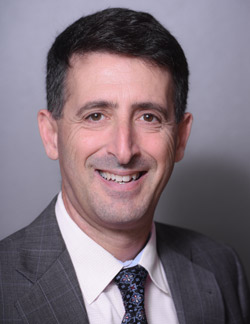Dean Andrew Abela outlined "woke capitalism" in the May issue of Legatus magazine.
"It's hard to avoid the 'wokeness' overrunning American business. 'Woke capitalism' is about businesses serving the politically correct ideology of the moment instead of serving customers, employees, and shareholders. It arose as a reaction against the mistaken belief that business is 'amoral' and so now attempts to re-moralize business, but it risks destroying free enterprise in doing so by making an equal and opposite error: it replaces 'business without ethics' with 'ethics without business.'
We need both: a return to a way of being where excellence is understood to include both effectiveness and ethics, simultaneously and inseparably. Call this 'human excellence,' and contrast it with what we might call 'machine excellence': the application of technology for gathering and processing quantitative information (which Pope Francis refers to as the 'technocratic paradigm' in Laudato Si, 109). Which is more important? We are getting steadily better at machine excellence, but what really make the difference between successful and failed businesses, organizations, and societies are habits of self-discipline, courage, generosity, creativity, and fairness — in other words, human excellence."
Read the full article, "Running an enterprise in ‘woke’ times."
 Dr. Andrew Abela is the founding dean of the School of Business and Economics and Associate Professor of Marketing at The Catholic University of America, in Washington, D.C. His research on the integrity of the marketing process, including marketing ethics, Catholic Social Doctrine, and internal communication, has been published in several academic journals, including the Journal of Marketing, the Journal of the Academy of Marketing Science, the Journal of Business Ethics, and the Journal of Markets & Morality, and in two books. He is the co-editor of A Catechism for Business, from Catholic University Press, and winner of the 2009 Novak Award, a $10,000 prize given by the Acton Institute for “significant contributions to the study of the relationship between religion and economic liberty.”
Dr. Andrew Abela is the founding dean of the School of Business and Economics and Associate Professor of Marketing at The Catholic University of America, in Washington, D.C. His research on the integrity of the marketing process, including marketing ethics, Catholic Social Doctrine, and internal communication, has been published in several academic journals, including the Journal of Marketing, the Journal of the Academy of Marketing Science, the Journal of Business Ethics, and the Journal of Markets & Morality, and in two books. He is the co-editor of A Catechism for Business, from Catholic University Press, and winner of the 2009 Novak Award, a $10,000 prize given by the Acton Institute for “significant contributions to the study of the relationship between religion and economic liberty.”
